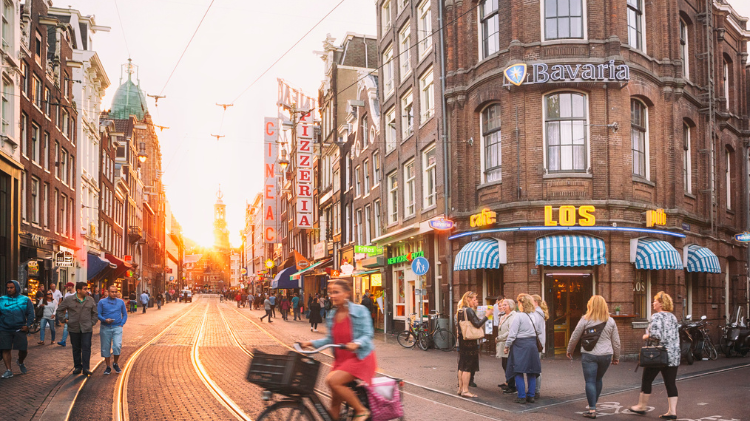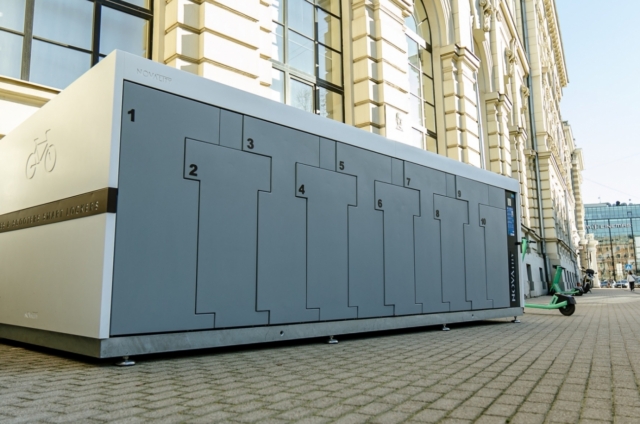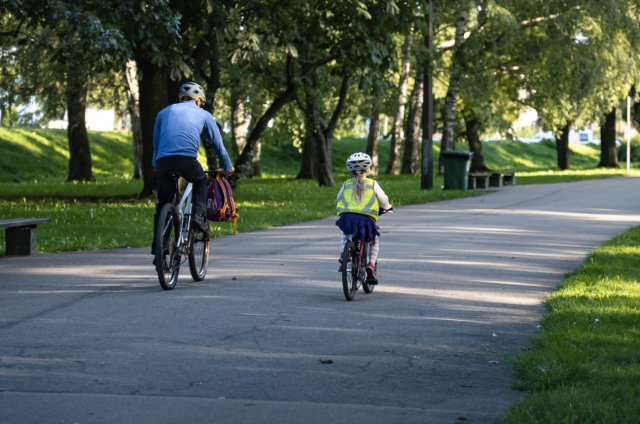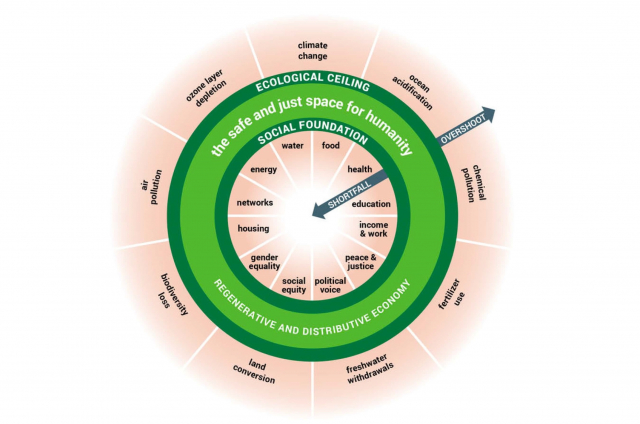JUST STREETS: prioritizing just and active mobility, while championing sustainability and inclusivity for all
Status: Ongoing projects

The project aims to improve the mobility safety and accessibility of vulnerable groups (including the elderly, children, women and people with reduced mobility, pedestrians and cyclists) by planning public space improvements and testing amenities in a selected pilot area.
One of the key elements for implementing climate adaptation strategies for European cities is to promote changes in the mobility behaviour of citizens, improving the mobility of pedestrians and users of micro-mobility tools, and improving public open spaces accordingly. The improvements planned in the JUST STREETS project will promote pedestrian safety and create a healthy, fair and pleasant living space for pedestrians, improving the quality of social life.
In the pilot neighbourhood selected for the Riga project, an analysis of the public outdoor mobility infrastructure will be carried out in terms of safety and quality in order to pinpoint and implement the necessary improvements and small-scale landscaping solutions. The analysis of the data will allow to use the proposals developed during the project to develop guidelines for safe streets and to implement similar solutions in other neighbourhoods.
Planned activities of the Riga project
⚈ Developing solutions to improve the public open space of the pilot area(s);
⚈ Testing solutions in selected pilot area(s);
⚈ Transfer of developed solutions and development of safe streets guidelines;
⚈ Public participation and communication activities;
⚈ Exchange of experience within the consortium
Duration, funding, partners
Funding: Interreg Baltic Sea Region program of the European Union
Budget: Total € 10 233 782,54, Riga Municipality funding € 597 882,50
Duration: 01.01.2024. – 30.06.2027.
Partners: Lead partner: the LINKS Foundation (Italy), an organisation promoting innovation and urban development; 12 cities, including 8 pilot cities – Riga (Latvia); Vilnius (Lithuania); Milan (Italy); Kozane (Greece); Braga (Portugal); Kugira (Romania); Westminster (UK); Amsterdam Municipality (Netherlands) and 4 follower cities – Southwark (UK); Haifa (Israel); Vratsa (Bulgaria); Zaragoza (Spain); 19 technical partners: University of Amsterdam (Netherlands); Polytechnic University of Turin (Italy); Israel Institute of Technology TECHNION (Israel); West Norway University of Applied Sciences (Norway); University of Porto (Portugal); Cluj-Napoca Technical University (Romania); University of Westminster (UK); Copenhagen IT University (Denmark); Climate Alliance (Germany); RINA Consulting (Italy); Social Innovation Centre “Social Fare” (Italy); Local Public Transport Agency of Milan, Monza, Brianza, Lodi and Pavia Basin (Italy); PIM Study Centre (Italy); Urban Future, Promoter of Sustainable Cities (Austria); European Cyclists’ Federation (Belgium); International Pedestrian Federation (Belgium); SETECHCO, the South East European Technology Company (Bulgaria); CIRCE FONDS, the Research Centre for Energy Resources and Consumption (Spain); TREDIT, the European Transport Consultancy for Development and Information Technologies (Greece).












